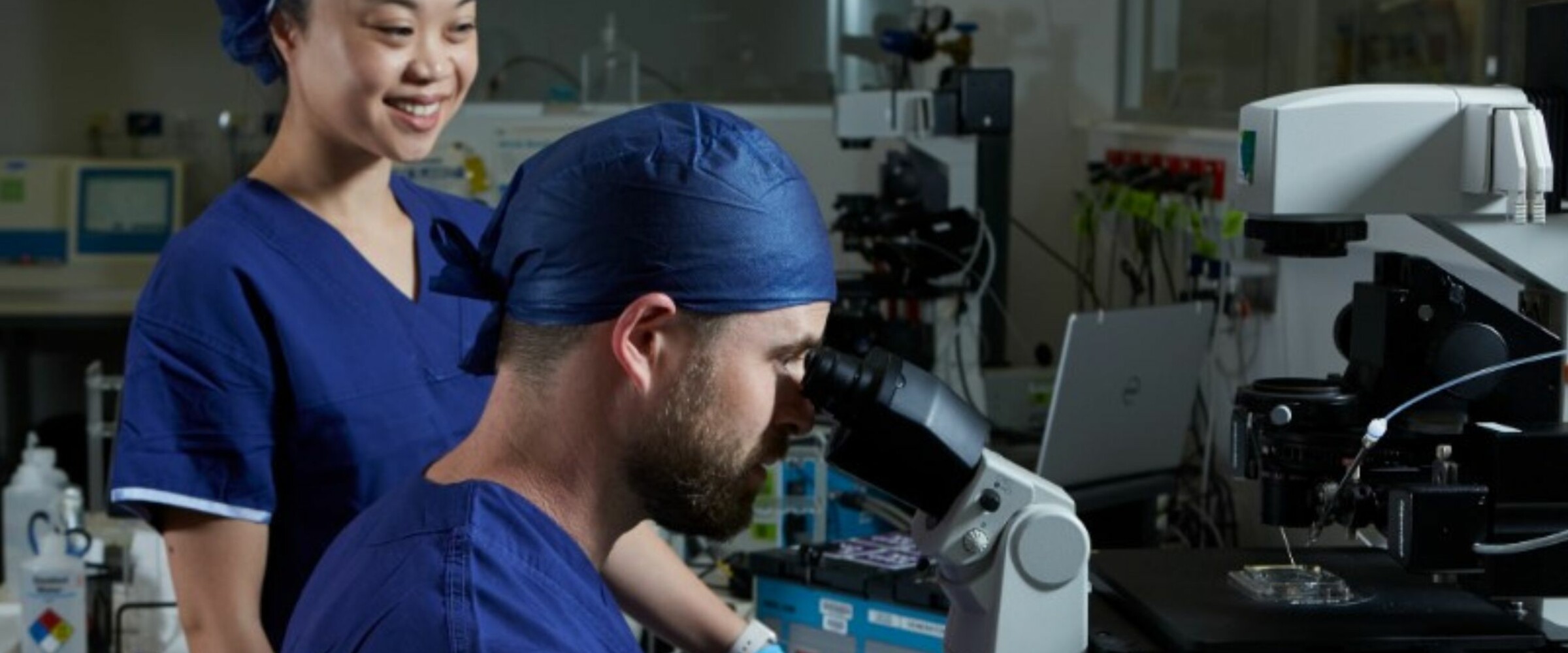
IVFAustralia's new AI algorithm sparks hope for infertile men in Australia
IVFAustralia embryologist and NeoGenix Biosciences develop new AI algorithm to help find sperm in infertile men in seconds.
A new artificial intelligence (AI) tool developed in Australia can identify sperm in severely infertile men in seconds, instead of up to six hours that it takes scientists to do the same job.
The AI algorithm brings new hope to men who want a biological child of their own, but have no sperm in their semen.
The research team, led by IVFAustralia embryologist Dale Goss and NeoGenix Biosciences CEO Steven Vasilescu, has just presented its ground-breaking results at ESHRE - the European Society of Human Reproduction and Embryology annual meeting - a major international conference in Copenhagen.
The study shows the AI algorithm (developed by NeoGenix Biosciences), which uses AI-powered image analysis, can dramatically improve the time taken to find sperm, with higher accuracy, in men diagnosed with non-obstructive azoospermia (NOA) – the most severe form of male-factor infertility, affecting nearly 5% of infertile couples seeking fertility treatment.
Dale Goss explains the research is the first-of-its-kind in applying AI to assist with surgical sperm detection.
“The early findings of this AI research are very exciting; it can improve efficacy and efficiency in treating the most difficult male infertility cases, and bring hope to men who want to conceive biological offspring, even in cases of non-obstructive azoospermia (NOA), when there is no sperm in the ejaculate.
- Dale Goss, IVFAustralia Embryologist
Mr Goss explains the current treatment for NOA is to undergo a procedure where a portion of the testes is removed; embryologists then search for and isolate sperm manually from the biopsy sample, and then the egg is fertilised via an IVF procedure called intracytoplasmic sperm injection (ICSI) - where a single sperm is injected into each egg to assist fertilisation.
“It can take an embryologist six hours to look through the partially shredded tissue samples using a fine needle and microscope to search for sperm,” said Mr Goss.
“Using AI image analysis, the newly trained algorithm can instantly identify sperm shapes and forms, then an embryologist clarifies if sperm is present, and if its viable for ICSI. Dramatically reducing processing times for surgical sperm patients,” said Dale Goss.
Dale Goss explains the study, which is a research collaboration between IVFAustralia and UTS Startup NeoGenix Biosciences and spearheaded by Steven and Phillip Vasilescu, “The aim of the study was to test if AI could speed up surgical sperm detection. The study was carried out at IVFAustralia and in the Warkiani Lab, UTS, involving 11 patients who consented to the study.
The researchers trained the algorithm by showing it thousands of still microscope photographs. These images featured sperm and high levels of other cells and debris, but only the sperm was highlighted, which enabled the AI tool to learn through image analysis what a sperm looked like.
The results showed the AI found more sperm overall, although some were only spotted by the embryologist, and some by AI alone. The embryologist found 3175 sperm, the AI found 3234, of the 3826 sperm present.
The algorithm found sperm for each droplet area in less than a 1000th of the time taken by an embryologist.
Mr Goss explains the next phase of the research is to further develop the AI, then conduct a clinical trial before the technology can be used to treat patients.
“This is a proof-of-concept test, and a clinical trial study is needed to compare an embryologist’s efficacy and usefulness versus the AI,” said Dale Goss.
Artificial Intelligence technology in near future will be the dominant tool to help identify healthy sperm in complex testicular tissue samples, to increase the chance of men diagnosed with severe forms of male infertility, to conceive their own biological children.
IVFAustralia is committed to investing in research which aims to advance patient care and pregnancy success rates.
- Dale Goss, IVFAustralia Embryologist
Infertility explained
In 40% of couples the cause of infertility is attributed to a sperm factor, in another 40% the cause is found within the female reproductive system, and a third will have a combination of male and female factors.
